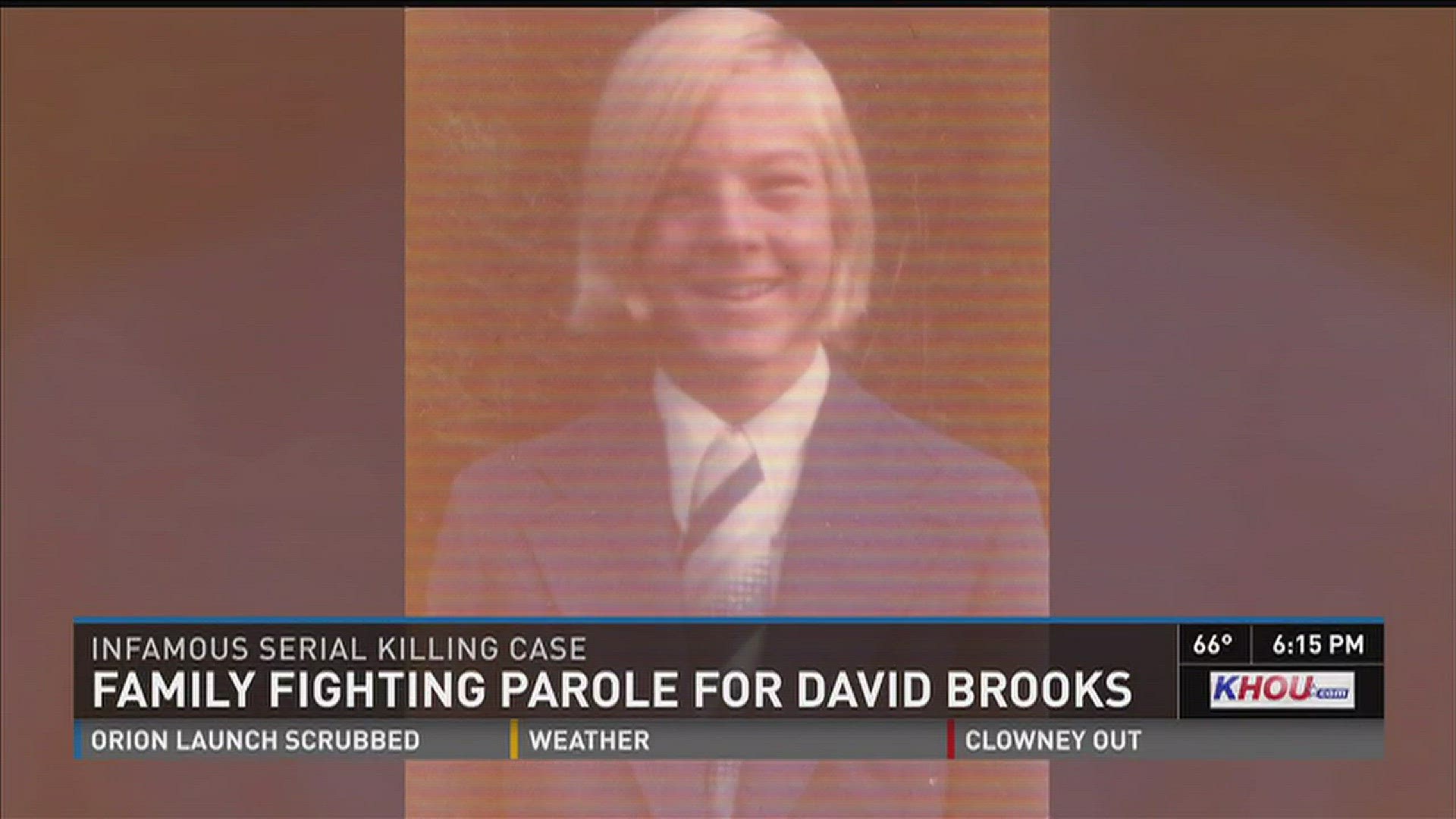![635533867175350008-Untitled [ID=19958331]](http://www.gannett-cdn.com/-mm-/1f602284233b97c28e15b66bbefaf727473a16eb/r=500x349/local/-/media/KENS/KENS/2014/12/05/635533867175350008-Untitled.png)
A mother and father from Pasadena drove to an office building in Angleton Thursday for a closed door parole hearing on one of Houston's most notorious killers.
Their son, a 13 year-old boy named Stanton Dreymala, may not be remembered by many people in the Houston area, but what happened to him is seared in the collective memory of a generation of Houstonians. He was one of at least 28 boys and young men lured to a horrifying death in what became known as the Houston mass murders.
"He was just a normal 13 year-old," said his mother, Elaine Dreymala. "He went to school, he rode his bike, he mowed lawns for his spending money."
Between 1971 and 1973, a man named Dean Corrl recruited two teenaged accomplices – David Brooks and Elmer Wayne Henley – to entice other youngsters to his homes, where they were drugged, raped and sexually tortured – sometimes for days – before they were murdered. Some of the terrified victims were forced to write notes telling their mothers they were leaving town shortly before they were killed.
The boys' disappearances were mostly dismissed as cases of runaways until one day in August 1973, when Corrl tried to kill Henley and Henley somehow managed to shoot Corrl dead. Henley and Brooks then led law enforcement authorities on a gruesome search for the buried corpses of their victims. Both of the surviving killers were sentenced to life in prison.
Since then, both of them have occasionally come up for parole. And although there seems little chance either of the notorious serial killers would be freed by a Texas parole board, the hearings tear at the psychological wounds imposed on the victims' families and friends.
"We can't hardly bear to go through this, since there's two of them," said Eliane Dreymala. "That's about every year and a half for us."
Henley has attracted more media attention than Brooks since their incarceration. An art gallery in Houston's Montrose area once hosted an exhibit of his paintings, which he has offered for sale. And a few years ago, he allowed himself to be interviewed and photographed by an author.
But some of the victim's families believe Brooks is more culpable in the killings than Henley.
"Brooks, of course, recruited Henley," said Andy Kahan, the City of Houston's crime victim advocate. "And essentially, he marched 28 young boys to their deaths knowing full well the sadistic type of torture they would receive before they were brutally killed."
The headlines in newspapers saved by the victims' families have faded, but their determination to keep the killers behind bars has not. Every couple of years, one of the two murderers comes up for parole. And loved ones of the victims mount campaigns to keep them in prison.
The Dreymala's appearance before a parole board in Angleton Thursday was especially poignant. They are now the last surviving parents to have lost a child in the Houston mass murders.
"And when we have to go through it, it brings back all the memories, all the horror," said Elaine Dreymala, Stanton's mother. "And it's just not right. We feel victimized every time we have to do it."
Of course, nobody's forcing them to appear before the parole board. But even though a parole for such notorious killers seems unlikely, the Dreymala's think their appearances are important.
"Every time we come up here, we think it's possible," James Dreymala said. "Not probable. But we would feel really, really stupid if he was paroled and we weren't here to fight it."
That's why they plan to join other victim rights advocates lobbying Texas legislators for a change in state law that would allow officials to wait five years between parole hearings for killers like Henley and Brooks. Right now, Kahan said, there's a disparity in the law decreeing that convicts guilty of lesser crimes can wait five years between hearings, but some of the state's most heinous murderers are eligible every three years.
However often the parole board holds its hearings, the Dreymalas plan to return every time.
"There is no earthly reason why they should ever be paroled," Elaine Dreymala said. "And we'll fight it as long as we are alive."


![Family fighting parole for David Brooks[ID=19921885] ID=19921885](http://www.gannett-cdn.com/-mm-/a0db1663f4f87238de6e3c5d87d12b5db253f3b8/c=328-0-1592-1080/local/-/media/KHOU/KHOU/2014/12/04/635533197015670263-parole.JPG)